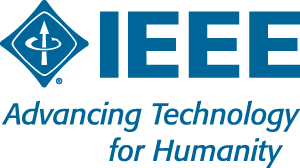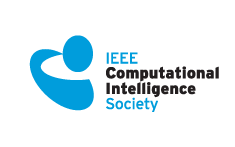2017 IEEE Symposium
on Computational Intelligence in Feature Analysis, Selection, and
Learning in Image and
Pattern Recognition (IEEE FASLIP'17)
Click here for Symposium website
In image analysis and
pattern recognition, the quality of the input data determines the
quality of the output (e.g. accuracy), which is known as the GIGO
(Garbage In, Garbage Out) principle. For a given problem, the input
data to any machine learning or data mining algorithm is almost always
expressed by a number of features (attributes or variables) showing
different properties of the problem. Therefore, the quality of the
feature space is a key for successfully solving any image analysis and
pattern recognition problem.
Computational intelligence techniques, mainly evolutionary computation,
neural networks, and fuzzy logic, have been shown to be effective tools
in image analysis and pattern recognition. However, their performance
is still limited or influenced when the feature space is of poor
quality, which may be that the dimensionality is too high (i.e. the
number of features is too big) leading to the "curse of
dimensionality", features are not equally important, some features are
irrelevant, redundant or even noisy, the original features are not
informative enough, the features are not linearly separable, and so on.
All these factors may lead to various performance limitations. For
example in image classification problems, these will lead to low
classification accuracy, a long training time, a complex classifier,
etc.
The IEEE Symposium on Computational Intelligence in Feature Analysis,
Selection, and Learning in Image and Pattern Recognition (FASLIP) aims
to offer world-wide academic researchers in those fields as well as
people from industry an opportunity to present their latest research
and to discuss current developments and applications, besides fostering
closer future interaction between members of the academic and industry
communities. FASLIP welcomes contributions that investigate the new
theories, methods or applications of different computational
intelligence paradigms to feature analysis, selection, and learning in
solving various image and pattern recognition tasks.
Topics
Authors are invited to
submit their original and unpublished work to this symposium. Topics of
interest include but are not limited to:
- Feature ranking/weighting
- Feature selection
- Feature extraction
- Feature construction
- Dimensionality reduction
- Multi-objective feature selection, construction or extraction
- Feature analysis on high-dimensional and large-scale data
- Analysis on computational intelligence for feature selection, construction, and extraction algorithms
- Evolutionary computation for feature analysis
- Neural networks for feature analysis
- Fuzzy logic for feature analysis
- Hybridisation of evolutionary computation, neural networks, and fuzzy logic for feature selection, construction, and extraction
- Hybridisation of evolutionary computation and machine learning, information theory, statistics, mathematical modelling, etc., for feature analysis
- Feature analysis in classification, clustering, regression, image analysis, and other tasks
- Real-world applications of computational intelligence for feature analysis, e.g. image sequences/analysis, face recognition, gene analysis, biomarker detection, medical data classification, diagnosis, and analysis, handwritten digit recognition, text mining, instrument recognition, power system, financial and business data analysis, etc.
Accepted
Special Sessions
(To be announced)
Symposium Co-Chairs
 |
Bing Xue Victoria University of Wellington, New Zealand Email: bing.xue@ecs.vuw.ac.nz |
 |
Mengjie Zhang Victoria University of Wellington, New Zealand Email: mengjie.zhang@ecs.vuw.ac.nz |
 |
Hisao Ishibuchi Osaka Prefecture University, Japan Email: hisaoi@cs.osakafu-u.ac.jp |
 |
Brijesh Verma Central Queensland University, Australia Email: b.verma@cqu.edu.au |






